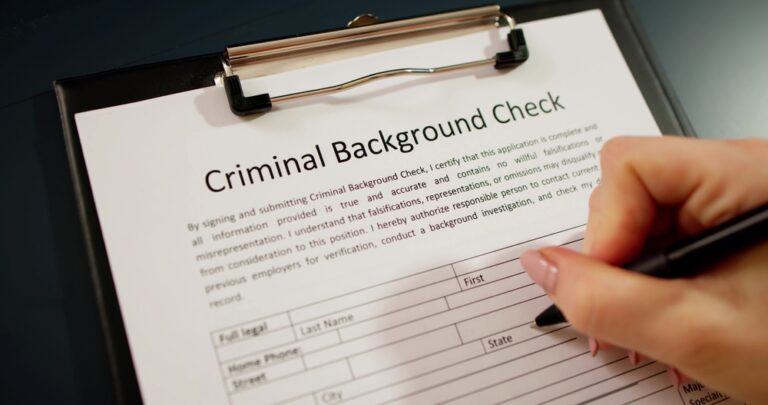DPS License #1607394
Private investigators play a critical role in uncovering information and solving cases, often complementing the work of law enforcement. While their roles differ, private investigators and police may collaborate in certain situations to achieve common goals. This article explores the relationship between private investigators and the police, the circumstances in which they collaborate, and the ethical and legal considerations that guide their partnerships.
What is the Difference Between a Police Detective and a Private Investigator?
Although the roles of police detectives and private investigators may seem similar on the surface, they serve distinct purposes and operate within different frameworks.
Police Detective
A police detective is a sworn member of law enforcement, employed by a public agency such as a city or state police department. Their responsibilities include:
- Investigating criminal cases.
- Collecting evidence to build cases for prosecution.
- Operating within the jurisdiction of their department.
- Enforcing laws and arresting suspects when necessary.
Government regulations bind police detectives and have access to state resources, including databases and forensic tools, that private investigators typically do not.
Private Investigator
A private investigator (PI) is a licensed professional hired by private individuals, businesses, or legal entities to gather information. Their responsibilities include:
- Conducting surveillance and background checks.
- Locating missing persons or assets.
- Providing evidence for civil cases, such as divorce or fraud investigations.
- Assisting businesses in internal investigations.
Unlike police detectives, private investigators operate in the private sector and are not authorized to make arrests or enforce laws.
Similarities and Differences Between Police and Private Investigator Responsibilities
Similarities
- Investigative Skills: Both police detectives and private investigators use observation, research, and analysis to gather information and solve cases.
- Interviewing Witnesses: Both parties may conduct interviews to obtain critical details.
- Evidence Collection: Each works to gather evidence, although the methods and access differ.
Differences
- Jurisdiction: Police operate within specific legal jurisdictions, whereas private investigators, depending on licensing laws, have more flexibility to work across various locations.
- Resources: Police have access to government databases and forensic labs, while private investigators rely on publicly available records and specialized tools within the private sector.
- Legal Authority: Police have the authority to arrest suspects and carry out law enforcement duties, while private investigators are limited to observation and evidence gathering.
In Which Cases Do Private Investigators and Police Collaborate?
Private investigators and police occasionally collaborate, particularly when their goals align in solving a case. Here are common scenarios where cooperation may occur:
Missing Persons
When a loved one goes missing, families may hire private investigators to complement the police’s efforts. Private investigators can dedicate more time and resources to the case, often uncovering leads that police can act upon.
Fraud and White-Collar Crimes
Businesses experiencing financial fraud or embezzlement may hire private investigators to conduct detailed audits and provide evidence. If the findings point to criminal activity, they are shared with the police to facilitate prosecution.
Civil Cases with Criminal Elements
Private investigators often work on civil cases, such as divorce or child custody disputes, that may uncover criminal behavior. Evidence collected by PIs can be forwarded to law enforcement for further action.
Cold Cases
Private investigators are sometimes hired to revisit cold cases. Their fresh perspective and additional resources can uncover new leads that police may not have had the time or capacity to pursue.
Understanding Arizona’s Legal Framework for Private Investigators
Arizona, like other states, has specific regulations governing the activities of private investigators. Understanding these rules is essential for both investigators and their clients.
Licensing Requirements
To operate as a private investigator in Arizona, individuals must:
- Obtain a license from the Arizona Department of Public Safety.
- Meet minimum age and residency requirements.
- Pass a background check and provide proof of experience or training.
Restrictions
Private investigators in Arizona must adhere to legal boundaries, including:
- Avoiding trespassing or illegal surveillance.
- Not impersonating law enforcement officers.
- Ensuring all evidence collection methods comply with state and federal laws.
Collaboration with Police
While private investigators can share information with police, they cannot interfere with ongoing investigations or act as law enforcement agents.
Ethical Considerations in Police-PI Partnerships
Collaboration between police and private investigators raises several ethical concerns. Both parties must navigate these carefully to maintain integrity and public trust.
Confidentiality
Private investigators often handle sensitive information about clients. Sharing such details with law enforcement must be done with the client’s consent and in compliance with privacy laws.
Evidence Handling
Both police and private investigators must ensure that evidence is obtained legally and is admissible in court. Any misconduct during evidence collection could compromise a case.
Transparency
Clear communication and transparency between police and private investigators are essential to avoid conflicts or misunderstandings.
The Importance of Choosing a Reputable Private Investigator
When hiring a private investigator, especially in cases that may involve police collaboration, choosing a reputable professional is crucial. Here’s why:
Compliance with Laws
A licensed and experienced PI understands the legal and ethical boundaries of their work, ensuring that your case is handled lawfully.
Quality of Work
Reputable investigators use proven methods and advanced tools to gather accurate and reliable information.
Credibility in Court
Evidence collected by a licensed private investigator is more likely to hold up in court, particularly if the investigator’s methods are transparent and lawful.
FAQs
Do Private Investigators Have Access to Police Records?
No, private investigators do not have direct access to police records. They rely on publicly available information and private databases to conduct their investigations.
Do Police Hire Private Investigators?
In some cases, police departments may work with private investigators, especially in cold cases or situations where additional resources are needed. However, private investigators are not employees of law enforcement agencies.
Do Private Investigators Serve as Members of Law Enforcement?
No, private investigators are not members of law enforcement. They operate in the private sector and do not have the authority to enforce laws or make arrests.
Do Private Investigators Carry Guns?
In Arizona, private investigators may carry firearms if they have the appropriate permits. However, the decision to carry a weapon depends on the investigator and the nature of their work.
Do Private Investigators Have Badges?
Private investigators may carry badges to identify themselves, but these badges must not resemble those used by law enforcement. Misrepresentation as a police officer is illegal.
Private investigators and police can work together effectively in certain situations, leveraging their unique skills and resources to achieve shared objectives. Whether you need assistance with a personal or business matter, understanding the roles and limitations of private investigators can help you make informed decisions. For professional investigative services, consider reaching out to a trusted Private investigator in Phoenix.



